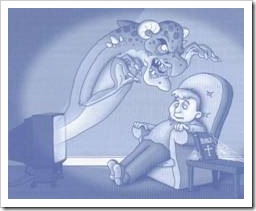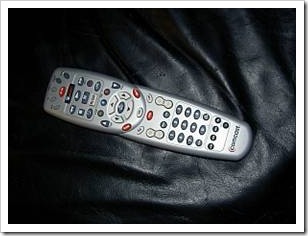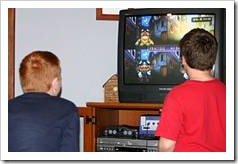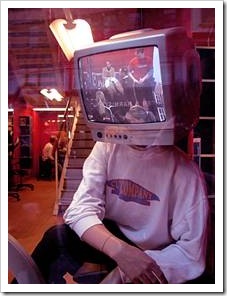 Last month, I ran a workshop for non-profit organizations about the work we do at Together for Humanity. In the workshop, I gave participants statistics about kids’ attitude to different cultures. Together for Humanity has worked around Australia with 50,000 kids from grades 4 to 12 and collected the information about their attitude in a survey. What do you know? Kids are racist! Very racist!
Last month, I ran a workshop for non-profit organizations about the work we do at Together for Humanity. In the workshop, I gave participants statistics about kids’ attitude to different cultures. Together for Humanity has worked around Australia with 50,000 kids from grades 4 to 12 and collected the information about their attitude in a survey. What do you know? Kids are racist! Very racist!
Regardless of age, most of the surveys showed bad attitude towards Muslims. When we asked the kids if they had ever actually met a Muslim person, most of them answered “NO”.
In their survey, kids answered that Muslims were not friendly, they were scary, they did not care for others, they did not have good morals or respect for women, they were unkind and arrogant and they were dangerous and racist – all without ever meeting a single Muslim person. What do you think about that?
Where did those kids get their negative impression of Muslims? I say they got it from watching too much TV.
In the workshop, I asked the representatives of the organizations to tell me what they thought about our survey results and they all said, “They get it from the media”.
Time and time again, when I ask parents about the things they fight with their kids over, too much TV always features on the list. I know it scares me that my kids watch too much TV, so I think it is a good idea to put some order into the TV topic.
TV Statistics
TV-Free America published some statistics about TV watching habits:
- The average American watches more than 4 hours of TV each day. This is 28 hours every week or 2 months of non-stop TV-watching per year!
- In a lifetime of 65 years, that person will have spent 9 years watching TV non-stop
- The average number of TV sets in an American household is 2.24
- There are three or more TV sets in 66% of American homes
- The average number of hours per day that TV is on is 6 hours and 47 minutes
- 66% of Americans regularly watch television while eating dinner
- The average number of minutes per week parents spend in meaningful conversation with their children is 3.5 (30 seconds a day!)
 The average number of minutes per week a child watches television is 1,680
The average number of minutes per week a child watches television is 1,680- The average number of hours per year an American youth spends in school is 900
- The average number of hours per year an American youth watches television is 1,500
- The average number of 30-second TV commercials a child sees in a year is 20,000
- The average number of TV commercials by a person sees by age 65 is 2,000,000
- 53.8% of TV time is devoted to stories about crime, disaster and war
- 0.7% of TV time is devoted to public service announcements
Now that you have read these statistics, you have two options: You can deny it and say it is impossible or you can get really scared!
The main reason people are concerned about the influence of TV on kids is that kids do not have many filters and it is easy for them to misinterpret what they see on TV.
The influence of TV is not limited to kids. Grownups are also influenced, because without this, advertising companies would not be making so much money. Just see how well drugs are selling because of TV advertising.
People watch TV for many reasons. I remember the first days of TV in our house when it was pure entertainment. It was a wonderful way to see the world and to learn new things. It was also a cheap replacement for going to the movies, because movies were so expensive we only watched 3-4 a year. So TV is not all bad. I can think of at least 10 very good reasons to watch TV:
 TV is fun and can keep kids and adults entertained for a long time
TV is fun and can keep kids and adults entertained for a long time- TV can be very educational at any age. When my kids were babies, I watched with them wonderful kid shows (like Barney and Blue’s Clues) that were colorful and happy with lots of positive values
- TV is also a great source of information and learning. When I studied a second language, math or science at school, we watched great movies and TV shows to help liven up those subjects. The Discovery Channel is wonderful at teaching us about the world around us. This week, we watched something about space and the universe and a show about Stonehenge. In the past, you could only get this information if you went to university and specialized in these topics, but now, almost every child has access to them
- TV can stimulate creativity. There are many shows about art and invention and they are presented in an easy and encouraging way, which I think is great
- “How to” shows on TV help make life easier and/or cheaper – how to keep a nice garden, how to fix things, how to cook, etc
- Watching TV is a form of relaxation. Many people watch TV just to clear their mind. They watch for the sake of watching, without any reason other than to relax
- Some TV shows are meant to stimulate discussion, exchange ideas and make people think. They promote discussion about justice, morals and ideals
- TV shows about the world around us increase our social and cultural interest and open our mind to different ways of living
 Some TV shows are targeted at kids with special interests. Music concerts for music lovers, fashion shows for fashion lovers, science shows for science loves and art shows for art lovers
Some TV shows are targeted at kids with special interests. Music concerts for music lovers, fashion shows for fashion lovers, science shows for science loves and art shows for art lovers- People who love travelling can see other places in the world in a very cost-effective way
You are probably asking yourself, “If you think TV is so good, why are you so worried about it?”
Join me next week for the other side of TV and the reason TV brings up concerns for parents.
Until then, have a great week!
Ronit
This post is part of the series TV Diet:
- TV Diet (1): Too Much TV?
- TV Diet (2): Health Concerns
- TV Diet (3): Kids Behaving Badly
- TV Diet (4): Kids’ Outlook on Life
- TV Diet (5): Parent-Child Relationships
- TV Diet (6): Disposable relationships
- TV Diet (7): Learning and Education
- TV Diet (8): How Much TV is Too Much?
- TV Diet (9): Kids’ Personalities
- TV Diet (10): Parents’ Influence
- TV Diet (11): The Right TV diet
- TV Diet (12): Junk TV
- TV Diet (13): Raising Aware Kids
- TV Diet (14): Cutting Junk TV
- TV Diet (15): Routine
- TV Diet (16): Healthy Alternatives
- TV Diet (17): More Healthy Alternatives
- TV Diet (18): Conclusion
 The average number of minutes per week a child watches television is 1,680
The average number of minutes per week a child watches television is 1,680 TV is fun and can keep kids and adults entertained for a long time
TV is fun and can keep kids and adults entertained for a long time Some TV shows are targeted at kids with special interests. Music concerts for music lovers, fashion shows for fashion lovers, science shows for science loves and art shows for art lovers
Some TV shows are targeted at kids with special interests. Music concerts for music lovers, fashion shows for fashion lovers, science shows for science loves and art shows for art lovers










